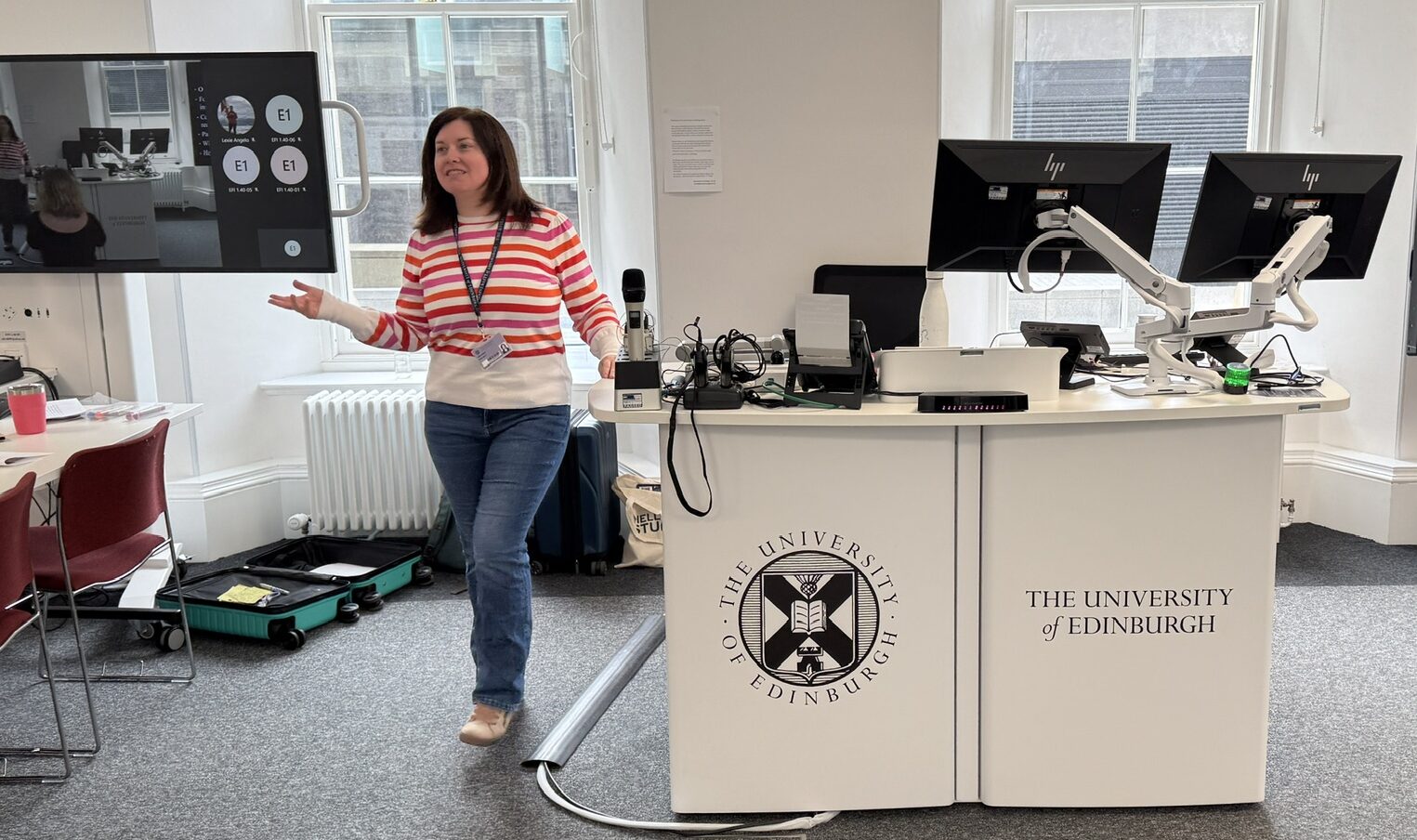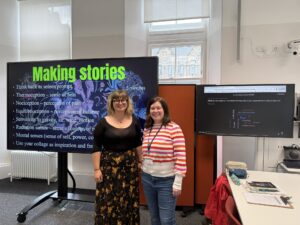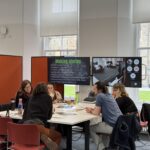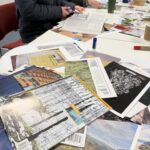Leading a doctoral workshop at the Future’s Institute

A few weeks ago, I lead a workshop for doctoral students across Scotland and whew – it’s so hard to do things when I’m feeling scared. Even though I’ve taught undergrads and master’s students before — and this was only a one day workshop — the evening before still had me feeling jittery.
I had pitched this idea months earlier, somewhat forgot about it, and then suddenly it was the night before and students were travelling from Glasgow and Dundee to listen to me (hopefully) teach them a new research method they could apply to their own projects. No pressure!
I teamed up again with Sam Le Butt from the University of Bristol who is so cool, calm and collected when it comes to leading these types of workshops. I hadn’t done one of these before, so it was helpful to talk through my slides on liminal and nebulous places. Sam is researching fungal horror in literature — think haunted spores and mushrooms. And I’m looking at techniques writers can use to create liminal places such as highways. I can not emphasize this enough because it is a DREAM to work with your friends. Sam and I met during our master’s program, and between the two of us, we managed to combined forces for our full-day session at the Edinburgh Future’s Institute.

Our plan for the day
We split the day into two sections and decided on doing the creative writing exercises first, followed by a collage activity to get students working with the creative practice of liminality in a new way. Sam has these incredible collage folders of strange and unusual materials, some of them sourced from old textbooks and medical magazines. If it’s weird, she has found it.
Our introverted icebreaker was a google map where students shared a memorable journey they’ve taken, and I plotted each destination on a shared google map. It was a pretty low-stakes activity that got people chatting before we went into our writing activities.
I haven’t taught a full course since 2022, so it was a bit intimidating teaching international students versus Canadian students. There were some interesting cultural differences, which Sam picked up on better than I did because I have no understanding of the British class system and how that interplays within a classroom. I also noticed UK students were less chatty, and less willing to share work openly versus their Canadian counterparts (who need a bit less prodding).
Funding and organizing
The workshop was also my first experience with UK funding. I was awarded funding through the Scottish Graduate School for the Arts and Humanities (SGSAH) which basically covered the day rate for myself and Sam, catering, some supplies (Pritt sticks…which does make me giggle. These are glue sticks) and Sam’s travel up to Edinburgh.
In Canada, when funding is awarded, it gets immediately delivered to your bank account within days of signing the contract. However, in the UK, there is general weirdness about paying funds. The money continues to exist in a limbo-like state even as I’m writing this. And according to legend (the finance dept), the funds were supposed to be transferred from SGSAH to the University of Edinburgh’s finance team, which would then get dispersed to me. But still, after having delivered the workshop, the money is nowhere to be seen. Even when I was talking to the finance guy at Edinburgh, he was optimistic that funds would arrive by the end of the year. END OF THE YEAR.
I can’t imagine why it’s so difficult to do money transfers, but… this is the UK. Getting paid is a weird process. From what I can tell, large wealthy institutions think it’s “uncool” if you want the money you are owed from your own labour.
- Discussing writing
- Collage materials
- Sam at the lecture desk
Interdisciplinary research methods
What made our workshop a bit unique is that it was part of a larger Spring into Methods programme which brought together arts, humanities, social sciences, and other doctoral researchers from across Scotland for in-depth approaches to learning a specific research method. Our proposal, which I put together in about two hours, focused on interdisciplinary research techniques and combined creative writing, literature, gothic studies, geography, and arts production.
The workshop also explored the use of site visits and video recordings in crafting liminal spaces using the research method of place-oriented experiential techniques. Using a process-based model of literary place-making, students were introduced to emerging concepts in creative writing and engage with liminal places as an immersive method.
I played video recordings of dark and haunting drives down Canadian highways in the fall and winter, and it is always worth it to see the looks on people’s faces. I often forget that driving down dark highways in a snowstorm is not normal.
Having fun while being intimidated
One of the unique features of doing a PhD is that you get opportunity to do the most random events. I still get intimidated when I take on these projects because I’m introverted and never really know what to expect. I also apply for so many things and I get rejected most of the time, so I don’t always imagine myself doing these projects. But sometimes my proposals DO get accepted, and then I have to overcome my fears, hesitations and self-doubt and just get on and do it.
And they always seem to turn out.
We had some great feedback from the students who attended, and I figured that ordered a healthy amount of catering would smooth over any bumps in the program. I thought, well, if I fail miserably, atleast there are brownies.






